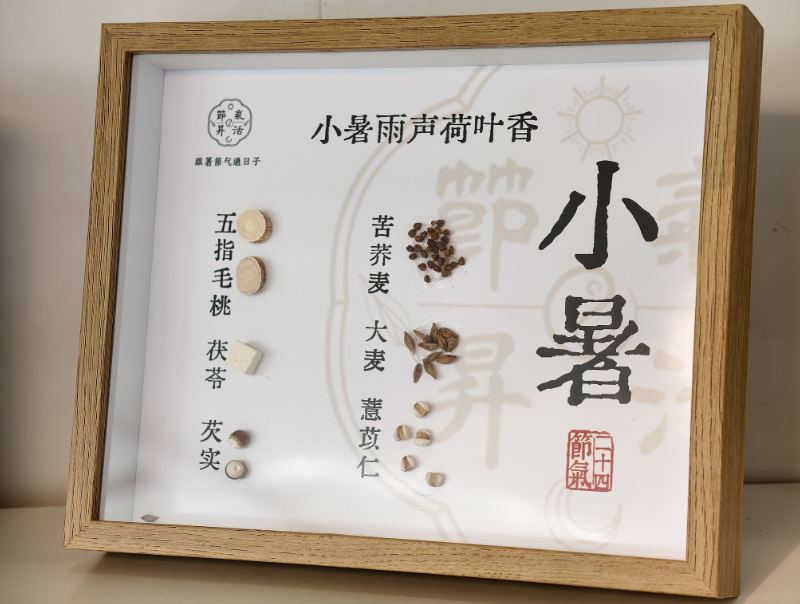ARTS / CULTURE & LEISURE
Xiaoshu, or Lesser Heat: the beginning of a hot summer

A decoration on Xiaoshu Photo: VCG
Xiaoshu, or Lesser Heat, marks the 11th solar term of the traditional Chinese calendar. This year, Lesser Heat begins on Saturday, July 6, when the sun reaches an ecliptic longitude of 105 degrees. This 15-day period signals the onset of the hot summer season.
As the name implies, Lesser Heat suggests that temperatures are rising but have not yet reached their peak. Alongside the growing heat, this period often brings frequent thunderstorms and rainfall. In the lower stretches of the Yangtze River, the "plum rain" season may continue for a few more days.
In other regions, rising temperatures may lead to droughts. Natural disasters like droughts, floods, and landslides become more common during this time, making caution crucial for both governments and the public.
After Lesser Heat, most areas in China enter the rainy season, which accelerates crop growth. In some regions, such as the western part of South China, rainstorms, thunderstorms, and even hailstorms can occur, causing floods and landslides. Conversely, the eastern part of South China often faces droughts, requiring measures to combat them and prevent floods. Additionally, typhoons become more frequent during this period.
In ancient China, Lesser Heat was divided into three pentads, each reflecting changes in climate, flora, and fauna. During the first pentad, hot winds begin to blow. In the second, crickets move from fields into yards, and in the third, young eagles learn to fly and hunt. Fireflies also become more active, making it an ideal time for night photography.
During Lesser Heat, crops in many parts of China undergo vigorous growth, keeping farmers busy managing summer and autumn crops. In the northwest regions, the focus shifts to harvesting winter and spring wheat. The abundant sunshine in these areas supports the growth of autumn crops such as rice, cotton, and corn, making it essential to prepare for droughts and floods, as well as to control pests and diseases.
The sixth day of the sixth month in the Chinese calendar is known as the "Tiankuang Festival" or the Festival of Heaven, which celebrates nature's gifts. On this day, people traditionally put out calligraphy works, paintings, and clothes to dry, a practice believed to prevent damage from insects.
Global Times
